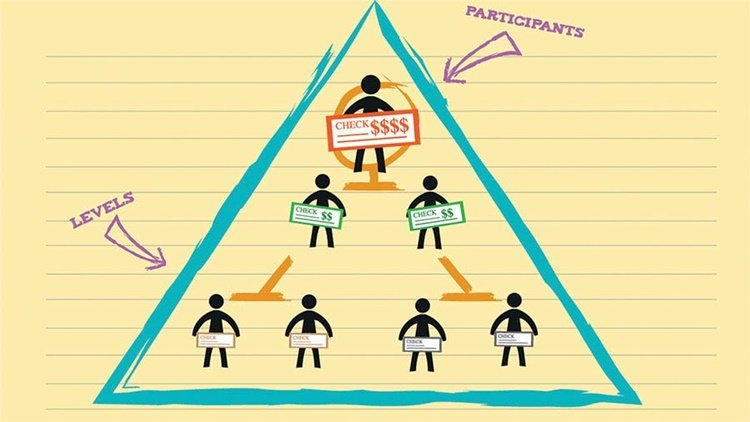Here are some of the alleged pyramid schemes
Pyramid Schemes – In the world of business, these alleged schemes or scams caught the attention of many people.
A pyramid scheme or scam relies on the recruitment of people to sell a product. It is more often retail-oriented. In this kind of business, recruits have to buy inventory and sometimes pay a huge amount of money to sell the items.
Since it is a pyramid, people below work more than those who are on the top. Often, they only receive minimal profit compared to those who are on the upper portion of the pyramid. With this, they had to look for recruits to replace their place at the bottom.

Based on that article in Mental Floss, here are seven of the alleged pyramid schemes known to many.
Holiday Magic – William Penn Patrick bought into a small makeup brand and started this company. Then, he started recruiting people to sell lipstick, blush, powders, and creams. He claimed that these products were made from organic ingredients.
Paying an extra penny could include the member in the |Leadership Dynamics” course. Patrick claimed that participants’ activities such as crawling into coffins, getting strapped onto a cross, and enduring physical abuse were part of the big-picture strategy which was to make the participants more appreciative of their lives. This made Patrick very wealthy.
A lawsuit was filed against him in the early 70s and the government accused Patrick of stealing more than $250 million from the 80,000 people he had recruited for the scheme.
LuLaRoe – It was a multi-level marketing company that sells leggings and other clothing items. LuLaRose became controversial when people noticed that it had a cult-like membership and left distributors with unsold inventory at some point some went bankrupt.
The company is still in the middle of some lawsuits as it continues its operation but the distributors’ number dropped from 80,000 to less than 20,000.
TelexFree – This company conned 1.8 million victims out of a total of $3 billion. It offered free Internet phone calls to Brazil and other countries in Latin America. Participants were not required to sell any product but they had to spend their own money for them to join and buy ad space online. They were also required to recruit.
A judge ruled in 2020 that more than $150 million would be paid out to 100,000 of TelexFree’s victims. The president of the company was sentenced to six years in prison for fraud.
Other pyramid schemes recorded in history were the Koscot Interplanetary, BurnLounge, Fortune Hi-Tech Marketing, and Veema.
